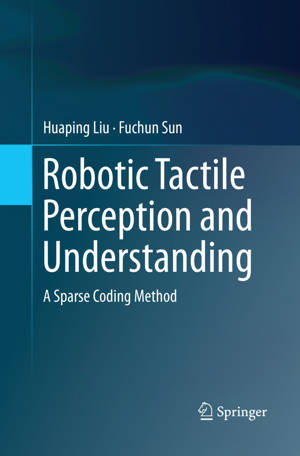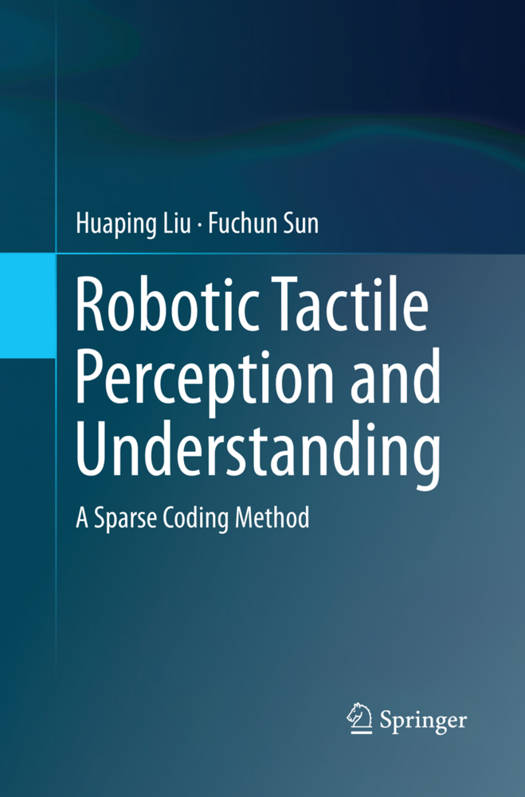
- Afhalen na 1 uur in een winkel met voorraad
- Gratis thuislevering in België vanaf € 30
- Ruim aanbod met 7 miljoen producten
- Afhalen na 1 uur in een winkel met voorraad
- Gratis thuislevering in België vanaf € 30
- Ruim aanbod met 7 miljoen producten
Robotic Tactile Perception and Understanding
A Sparse Coding Method
Huaping Liu, Fuchun SunOmschrijving
This book introduces the challenges of robotic tactile perception and task understanding, and describes an advanced approach based on machine learning and sparse coding techniques. Further, a set of structured sparse coding models is developed to address the issues of dynamic tactile sensing. The book then proves that the proposed framework is effective in solving the problems of multi-finger tactile object recognition, multi-label tactile adjective recognition and multi-category material analysis, which are all challenging practical problems in the fields of robotics and automation. The proposed sparse coding model can be used to tackle the challenging visual-tactile fusion recognition problem, and the book develops a series of efficient optimization algorithms to implement the model. It is suitable as a reference book for graduate students with a basic knowledge of machine learning as well as professional researchers interested in robotic tactile perception and understanding, and machine learning.
Specificaties
Betrokkenen
- Auteur(s):
- Uitgeverij:
Inhoud
- Aantal bladzijden:
- 207
- Taal:
- Engels
Eigenschappen
- Productcode (EAN):
- 9789811338731
- Verschijningsdatum:
- 29/12/2018
- Uitvoering:
- Paperback
- Formaat:
- Trade paperback (VS)
- Afmetingen:
- 156 mm x 234 mm
- Gewicht:
- 326 g

Alleen bij Standaard Boekhandel
Beoordelingen
We publiceren alleen reviews die voldoen aan de voorwaarden voor reviews. Bekijk onze voorwaarden voor reviews.











